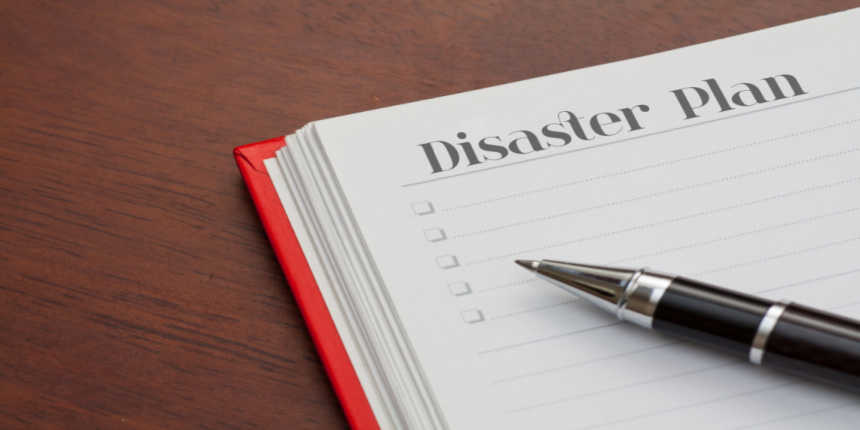CDRI Full Form
What is the full form of CDRI?
CDRI stands for Coalition for Disaster Resilient Infrastructure. It was formed mainly for the motive to grow the resilience of new and existing infrastructure systems from climate and disaster risk and also to support sustainable development. It is formed by the coming together of the national Government, some UN agencies, multilateral development banks, educational institutions and some private sectors.
- CDRI: Coalition for Disaster Resilient Infrastructure
- Objective of CDRI
- CDRI’s Strategic Priorities
- Members of CDRI

Through promoting infrastructure system resilience to climate and disaster hazards, CDRI intends to ensure sustainable development. To address the requirements of the Sustainable Creation Goals of providing universal access to essential services, enabling prosperity, and decent employment, it aims to quickly increase the development and renovation of resilient infrastructure. All organizations are eligible to join the CDRI, with the governing council's consent.
CDRI: Coalition for Disaster Resilient Infrastructure
The CDRI (Coalition for Disaster Resilient Infrastructure) implements several complementary programmes to educate and inspire CDRI Member Countries on how to improve national and global cooperation for disaster- and climate-resilient infrastructure. The following are current initiatives at CDRI:
Power Sector Resilience Study
Global Study Of Disaster Resilience of Airpot
Assessment of Fiscal Risk due to Disaster-Induced Loss and Damage in CDRI Countries
Risk and Resilience Assessment of Transport Infrastructure
Disaster Resilience Digital Infrastructure
Risk Resilience and Early Warning System
Objective of CDRI
Increasing nationally and regionally suitable standards, codes, specifications, and guidelines for the planning, design, operation, and maintenance of disaster and climate-resilient infrastructure
Serving as a platform where knowledge is created and exchanged on different aspects of disaster and climate-resilient infrastructure
Creating links with other relevant projects to achieve these goals
Enhancing institutional and technological innovation for resilient infrastructure systems
Making technical assistance accessible to help countries create resilient infrastructure in line with their disaster and climate risks and resources
Advocating for financial reform
Making available technical expertise to assist countries in developing resilient infrastructure under their disaster and climate risks and resources
CDRI’s Strategic Priorities
Technical Support and Capacity Building: This includes help with disaster response and recovery, standards and certification, and assistance with increasing institutional and community capacity.
Research and Knowledge Management: This includes team research, international flagship publications, a worldwide database of infrastructure and industry resilience, and more.
Advocacy and Partnership: This includes the spread of knowledge goods, markets for funding and implementing knowledge, and international events and activities.
Members of CDRI
COUNTRIES
Afghanistan
Argentina
Australia
Bangladesh
Bhutan
Brazil
Canada
Chile
Dominican Republic
Fiji
France
Germany
Ghana
Haiti
India
Italy
Jamaica
Japan
Madagascar
Maldives
Mauritius
Mongolia
Nepal
Netherlands
Peru
South Sudan
Sri Lanka
Tajikistan
Turkiye
United Kingdom
United States of America
Partner Organization
Asian Development Bank ADB
World Bank Group
Private Sector Alliance for Disaster Resilient Societies
Coalition for Climate Resilient Investment
European Union
European Investment Bank
Frequently Asked Questions (FAQs)
Even while ISA is a treaty-based organization and CDRI in its current form is not. Both may be considered as complimenting one other's efforts. While the CDRI focuses on adjusting to climate change through disaster-resistant infrastructure, the ISA is active in climate change mitigation through the deployment of additional solar energy in place of fossil fuels.
During the 2016 Asian Ministerial Conference on Disaster Risk Reduction held at Vigyan Bhavan in New Delhi, Indian Prime Minister Narendra Modi made the initial proposal for CDRI.
India has contributed a sizable portion of the funds needed to pay expenses for the first five years. The coalition is not obligated to receive any financial support from the members. They can, however, voluntarily make contributions in cash or other forms, such as designating experts to the CDRI Secretariat, hosting conferences and workshops, and providing financial aid for travel.
CDRI is located in Delhi.
The International Solar Alliance (ISA) is complemented by CDRI, which gives India a platform to become a world leader in climate action and disaster resilience.